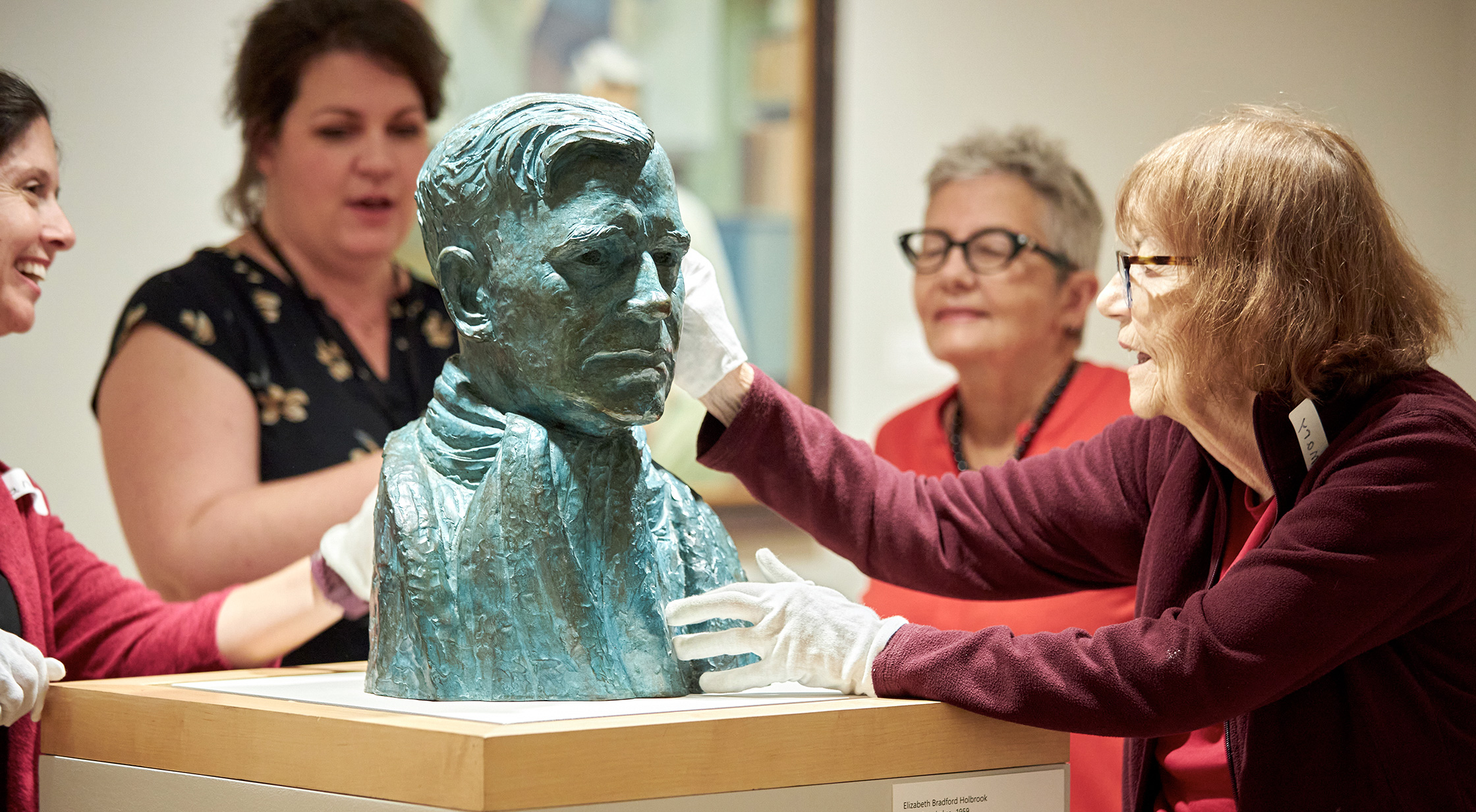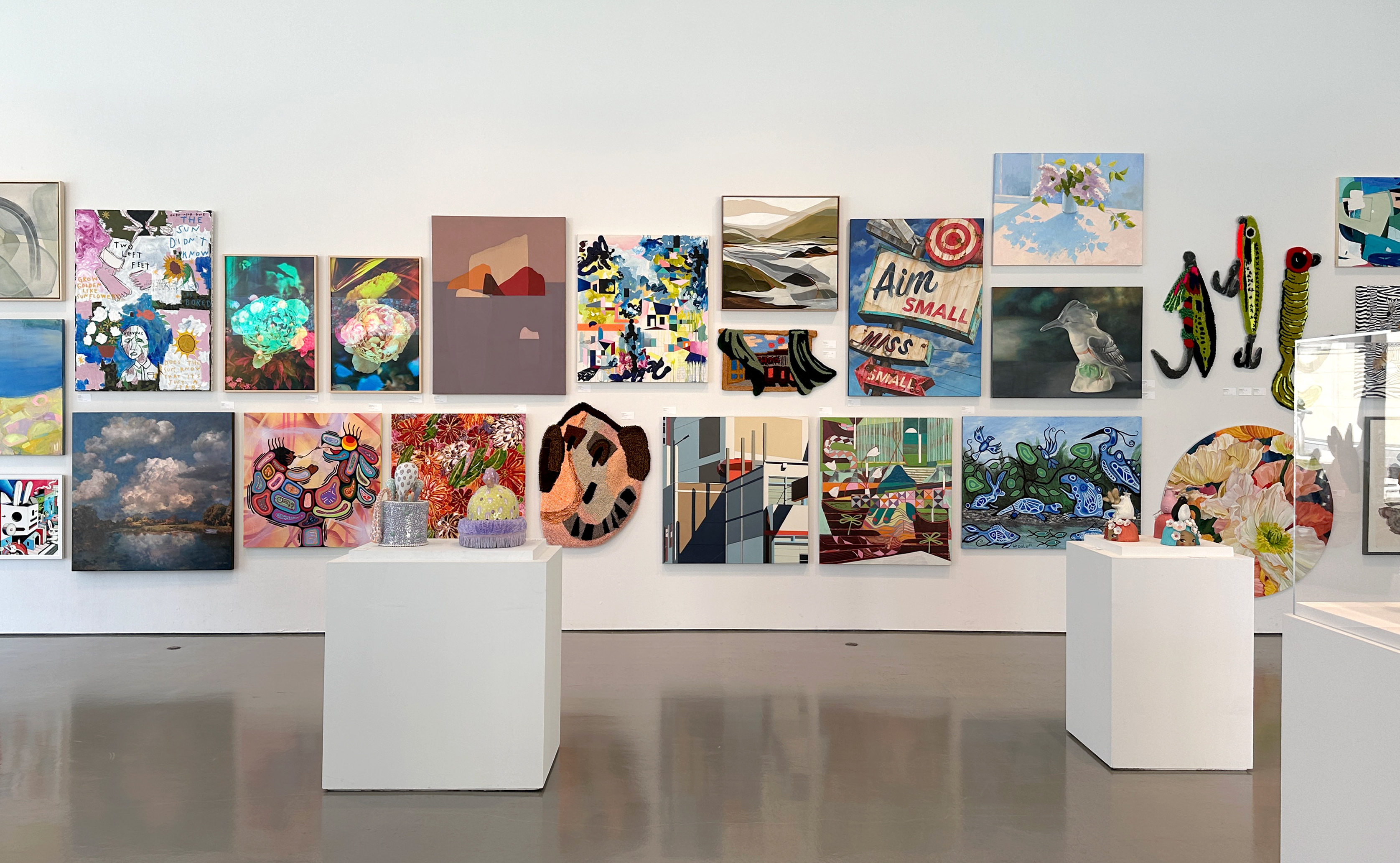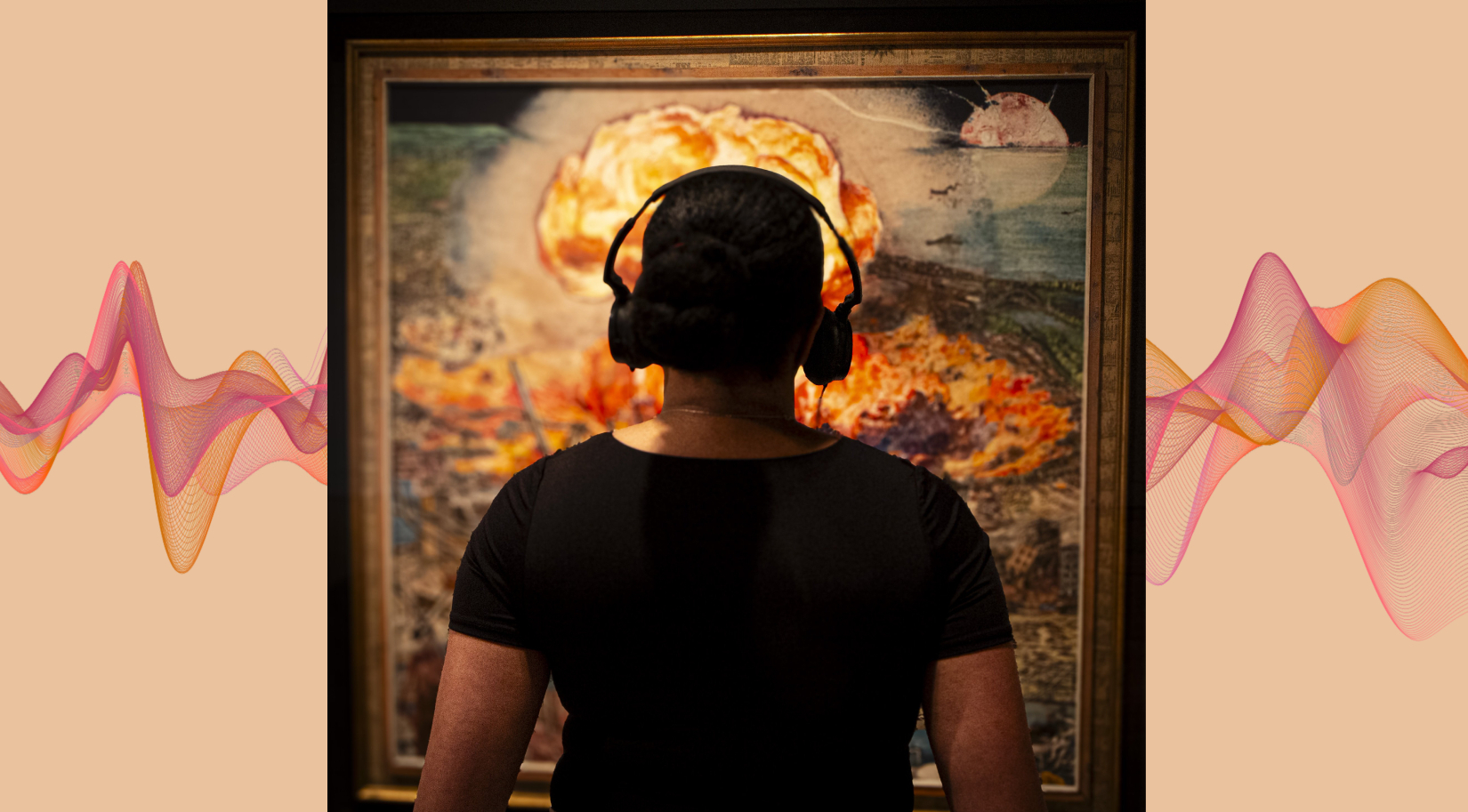World Alzheimer’s Day on September 21 is an important moment to highlight a positive message for those living with dementia, along with their families and friends, and focus on strengths, relationships, connection, and contribution. These are important aspects of quality of life that is present and can be enhanced every day of a person’s life
Even as people living with dementia experience changes in their communication and daily living, they remain unique, valued individuals with rich histories, hopes and interests. They hold many roles—friend, loved one, colleague, caregiver, leader, and creative person. Their journey is filled with opportunities for sharing and connection.
Museums have a unique opportunity to engage with each visitor’s story through exhibitions, interpretive materials and thoughtfully designed programs. Engaging with art, historical objects, or natural settings can be meaningful for everyone, including those with dementia. Each museum visitor brings their own interests and experiences, offering unique insights on our collections and how they relate to their lives.
Visitors come for many reasons and leave with diverse experiences, all hoping to see something of themselves reflected in the museum. Our mission is to create connections between our objects and our visitors, ensuring that each interaction is meaningful.
There’s a saying: “If you’ve met one person with dementia, you’ve met one person with dementia.” Each individual’s journey is unique. Our goal is to support each person “in the moment,” empowering them to participate as they wish and to build meaningful life experiences with the support they need.
Dementia doesn’t diminish the desire to connect, communicate, or feel a sense of belonging. Engaging in museum activities can be profoundly meaningful, allowing for self-expression and shared joy. Because of the abilities that remain long after a diagnosis of dementia, museum activities can be profoundly meaningful and can contribute to a sense of belonging.
For those living with dementia, feelings of uncertainty can arise as they depend more on others. Studies indicate that participating in activities that promote social connection and meaningful contributions can significantly enhance a person’s sense of purpose. When individuals with dementia feel heard and valued, and when connections with others are fostered, their quality of life improves.
A program participant from the AGH’s Artful Moments describes her experience:
“Looking at the art and talking about it… When everybody contributes and you’re listening to what they’re seeing and thinking, it inspires you to see more than you would have seen and to feel more confident. It was the sharing that really attracted me. Of course, the social elements were very pleasant. I looked forward very much to these afternoons – a real highlight.
It stays with you after you’ve participated. It’s not a single afternoon experience that fades away, there’s a real deep participation. It can be very satisfying to learn and to produce a small piece of art. You can be yourself in the kind of ambiance that is created there.”[i]
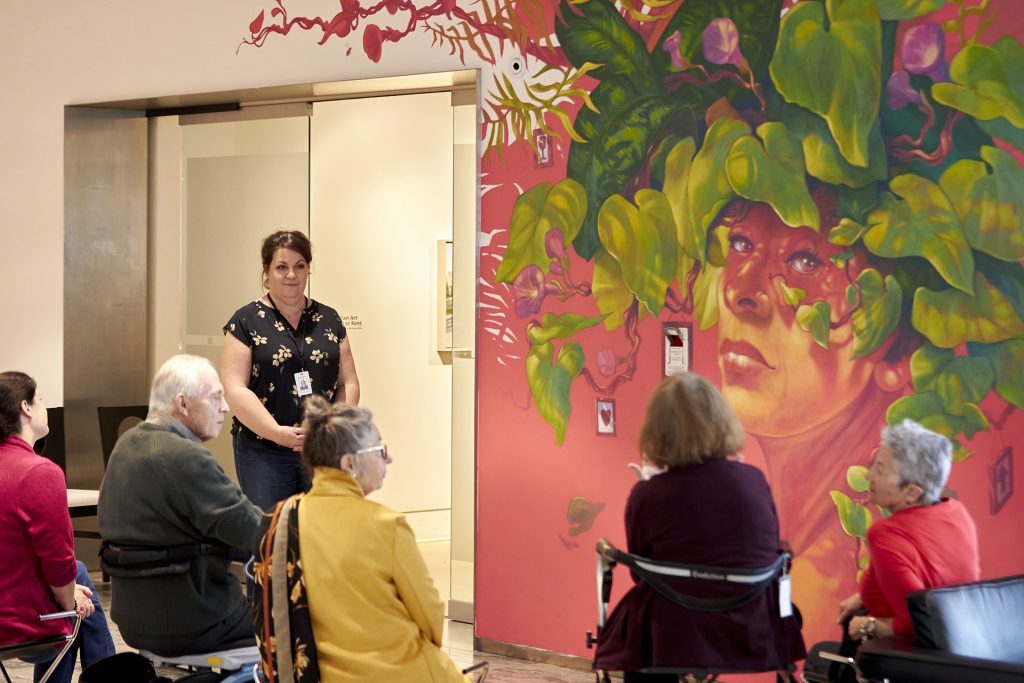
Leaving Dementia at the Door
Within our program team, we often say, ‘leave dementia at the door’. Our initial program design involves an in-depth understanding of the participants. Learning about dementia and adaptations that support abilities allow us to create individualized and engaging experiences. While we recognize the impact of dementia, our focus during programs is on the museum collections and the joy of shared experiences. We laugh, create, and highlight strengths, just as we would with any other group.
Programs like Artful Moments differ from therapeutically driven activities like art therapy or support groups. Our emphasis is on the person and their experiences, not the diagnosis. Museums can offer meaningful experiences that ignite interests, knowledge, curiosity, social connection and sharing. Museums can change the narrative of a person with dementia by leading with a knowledge-based but person-centered framework that empowers each person in their own way.
Artful Moments encourages participants to experience creative, social experiences. It is about engagement and wellbeing, separate from a more medical model of care. As two researchers, Mitchell and Jonas-Simpson, wrote in 2019, “the intent of the arts-based activities is not to provide therapy or diversion – instead it is initiated to present opportunities for participants to more fully express themselves in the moment with others.”[ii] And Clarke-Vivier et al, documented in a 2017 article that self-esteem is built by offering engaging experiences that sustain interest but does not have the disease or its symptoms at the center.”[iii]
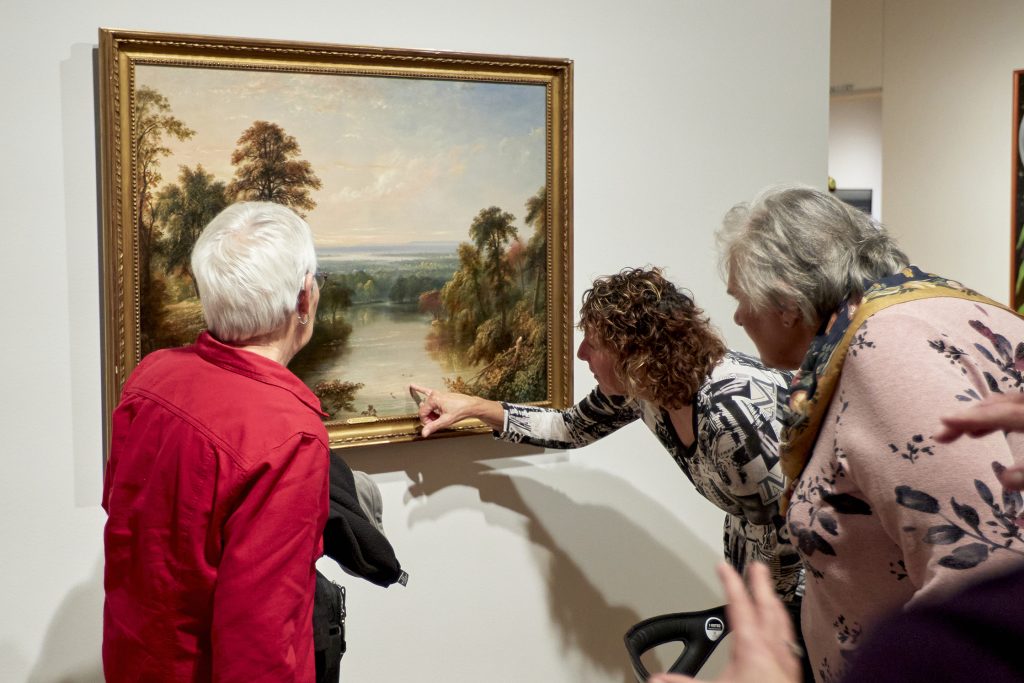
Focusing on Strengths
By focusing on strengths, we foster participation and positive feelings. We help participants to engage in a way that honors their individuality and makes the most of their abilities, interests, and contributions.
Many forms of memory are preserved long after a person begins to experiences changes. These include long-term memory, and remembering how to do things. Visual and emotional memory can also be drawn upon support engage with others and build relationships. Memories of moments from earlier in their life can provide great conversation between participants, their family and friends, and amongst the group.
The social and emotional skills that we use to connect with each other facilitate communication in a variety of ways, whether through words or through gestures and body language. Relationships and sharing happiness help in a lot of ways, all help build connection within families and a social group. A sense of humour helps too!
Museum programs have a wonderful opportunity to connect with memories from the past. Objects from an earlier time, artworks that show familiar places and activities, and music from a person’s younger days can spark memories and offer opportunities to share knowledge and personality. They can add to a conversation and individuals can take pride in their contributions, becoming an active and valued member of a group.
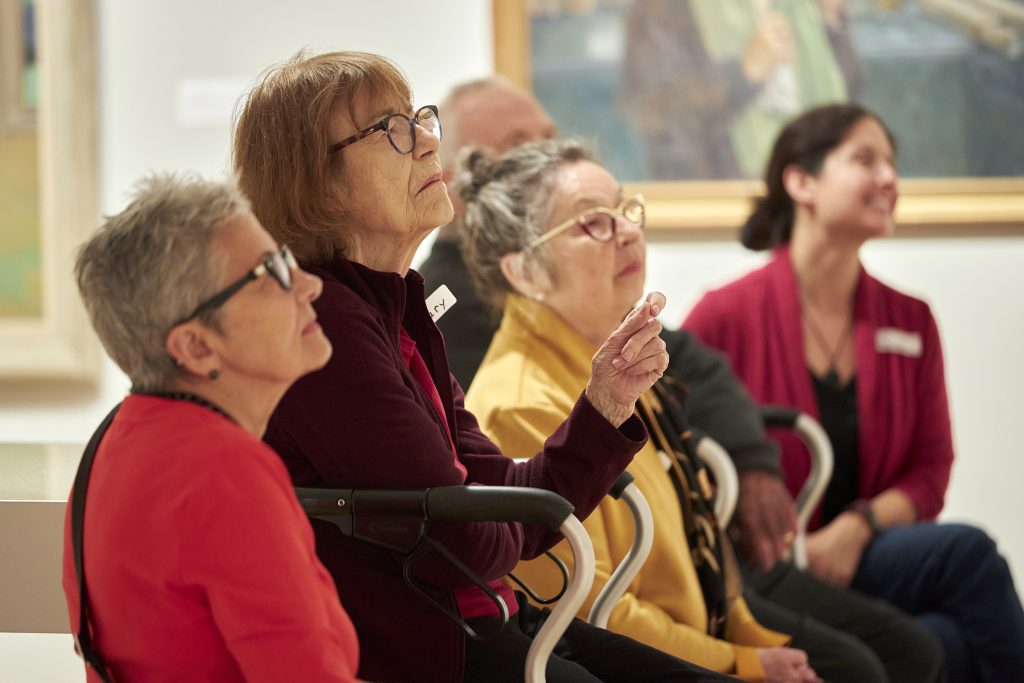
Creativity
Benefits of museum experiences include stress relief, building resilience, and varied opportunities for self-expression. For people living with dementia research also suggests a link between social and creative activities and improved quality of life and an ongoing drive to be creative.
Creative activities are not only beneficial for the person engaging in them, they are social activities that strengthen social ties among participants. From offering opportunities for self-expression to the joy of partaking in meaningful activities and creating work of their own, creative experiences have much to offer. Programs like Artful Moments can ignite new interests and hobbies or continue of a long-standing passion. By seeking out opportunities to use strengths and support changes in their abilities, we create the conditions for engagement.
Museums have a vital role in fostering connections, enhancing quality of life, and honoring the unique stories of every individual. By focusing on strengths and creating engaging experiences, we can support meaningful participation and connection for those living with dementia and their loved ones.
At the Art Gallery of Hamilton, we offer multiple ways for people living with dementia to participate:
Artful Moments: Memory Care is a weekly program of conversation and hands-on activity. We alternate between in-person and virtual sessions, and all are welcome– no art experience needed. You are welcome to come with a family member or friend. Fall programs start Oct. 2.
Dementia Friendly Days takes place on the third Tuesday of each month, offering a sensory-reduced environment with extra staff available to help as needed.
Artful Moments: Shared Learning is an online resource designed to support other museums in creating engaging programs for people living with dementia. www.artfulmoments.ca.
Artful Moments: Advisory Group is a new opportunity to share lived experiences and inform our program development. There are many ways to connect and contribute. Reach out to find out more: artfulmoments@artgalleryofhamilton.com
[i] Artful Moments participant interview, 2022. Names have been changed to respect privacy.
[ii] Mitchell, GJ., Jonas-Simpson, C., Richards, J., Brown, S., Bitove, V. “Creating a relational arts-based academy for persons living with dementia (Innovative Practice)”, Dementia, 20(3) (2019): 1148.
[iii] Sara Clarke-Vivier, Corie Lyford, and Lynn Thomson. “Strengths and challenges of arts-based programming for individuals with Alzheimer’s and related dementias”, LEARNing Landscapes, 10(2), (2017): 98.
